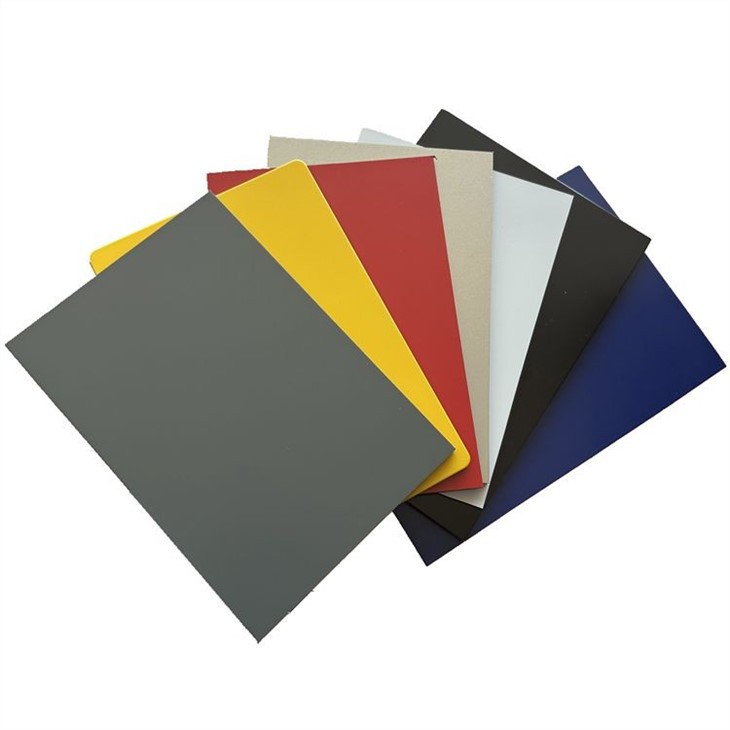Hey there! As a supplier of aluminum cladding panels, I often get asked about the acoustic performance of these panels. So, I thought I'd write a blog post to share some insights on this topic.
First off, let's talk about what acoustic performance means. In simple terms, it refers to how well a material can absorb, reflect, or transmit sound. When it comes to building materials, good acoustic performance is crucial, especially in spaces where noise control is important, like offices, schools, hospitals, and residential buildings.
Aluminum cladding panels have some unique properties that affect their acoustic performance. One of the key factors is the structure of the panel. Most aluminum cladding panels are made up of two aluminum sheets bonded to a core material. The core can be made of various substances, such as polyethylene (PE), mineral wool, or foam.
The type of core material plays a significant role in the panel's acoustic performance. For example, panels with a PE core, like the PE Composite Panel Cladding ACP, offer a certain level of sound insulation. PE is a relatively soft material that can absorb some sound waves, reducing the amount of noise that passes through the panel. However, its acoustic performance might not be as high as panels with more specialized core materials.
On the other hand, panels with a mineral wool core are known for their excellent acoustic properties. Mineral wool is a fibrous material that can effectively trap sound waves within its structure. When sound hits the panel, the fibers in the mineral wool cause the sound waves to bounce around and lose energy, resulting in less sound transmission. This makes mineral wool - core aluminum cladding panels a great choice for spaces where noise reduction is a top priority.
Another aspect that affects the acoustic performance of aluminum cladding panels is the thickness of the panel. Generally, thicker panels tend to have better acoustic performance. A thicker panel provides more mass and material for the sound waves to interact with, increasing the chances of sound absorption or reflection. For instance, our Aluminum Cladding Sheet Aluminum Composite Panel Manufacturers For 25years come in different thicknesses, and customers can choose the one that best suits their acoustic needs.
The installation method also has an impact on the acoustic performance. A proper installation ensures that there are no gaps or spaces between the panels, which could allow sound to leak through. When the panels are installed tightly and securely, they form a continuous barrier that helps in better sound insulation. For example, if the panels are not installed correctly, even the best - performing panels might not deliver the expected acoustic results.
Now, let's look at some real - world applications. In commercial buildings, aluminum cladding panels can be used to create a more peaceful working environment. By reducing the noise from the outside, such as traffic or construction noise, employees can focus better on their work. In schools, these panels can help in creating quiet classrooms, which are essential for effective learning.
In residential buildings, aluminum cladding panels can enhance the comfort of living spaces. They can reduce the noise from neighbors, streets, or other external sources, providing a more serene home environment. For example, a homeowner who lives near a busy road might choose to install our Light Grey 3mm ACP Sheet to improve the acoustic comfort of their house.
It's important to note that while aluminum cladding panels can contribute to acoustic performance, they are often part of a larger acoustic system. Other building elements, such as windows, doors, and interior finishes, also play a role in overall noise control. Therefore, when designing a building for good acoustic performance, it's necessary to consider all these factors together.
If you're in the market for aluminum cladding panels and acoustic performance is a concern for you, we're here to help. We have a wide range of products with different core materials, thicknesses, and colors to meet your specific requirements. Whether you're an architect, a builder, or a homeowner, we can provide you with the right advice and products.
Don't hesitate to reach out to us if you want to discuss your project further. We're always happy to have a chat about how our aluminum cladding panels can fit into your acoustic design needs. Let's work together to create spaces that are not only aesthetically pleasing but also acoustically comfortable.


References
- Building Acoustics Handbook, Various Authors
- Acoustic Properties of Construction Materials, Research Papers